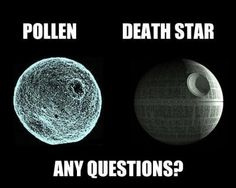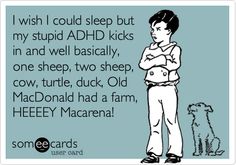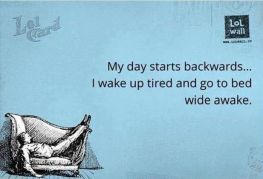I suffer from several invisible, chronic illnesses: asthma, allergies, irritable bowel syndrome, attention deficit hyperactivity disorder, depression, most likely misophonia, insomnia, migraines, plantar fasciitis, fibromyalgia, temporal mandibular joint dysfunction, eosinophilic esophagitis, lactose intolerance/sensitivity, and postural orthostatic tachycardia syndrome. The purpose of this post series is to explain these conditions further and when I was diagnosed. I, unfortunately, have so many conditions that this would be far too long for a single post, so I’ll be talking about them in the rough order of diagnosis (or onset if it was obvious enough to determine the exact start). If you want to know more about me as a person, please read my About Me section.
This post will cover: asthma, allergies, irritable bowel syndrome, attention deficit hyperactivity disorder, depression, most likely misophonia, and insomnia.
Since there is pretty much no external evidence of my illnesses (I “don’t look sick”), I sometimes refer to them collectively as my invisibles or my invisibilities… it’s more upbeat then calling them illnesses.
Asthma & Allergies
I was diagnosed with asthma when I was five, and I’ve had horrendous allergies for as long as I can remember. Having them both isn’t much of a surprise, since they’re very similar conditions. Both asthma and allergies are caused by hyperactive immune responses to external stimuli. In other words, my body overreacts to just about everything in some way. My asthma is mostly exercise induced, but is also triggered by colds, cold weather, and smoke; it can also be aggravated when my allergies are acting up. I’m extremely allergic to several grasses: perennial rye, June grass, and Timothy grass. I’m also pretty allergic to maple tree pollen and ragweed pollen. However, I’m also sensitive to all dust and dustmites, molds, animals, and most pollens, which makes life itchy, to say the least.
Because I’ve had these two conditions for so long, they are only mildly irritating when they flare up.
Irritable Bowel Syndrome (IBS)
IBS is a syndrome characterized by seemingly random bowel issues. People with IBS almost never have “normal” bowel movements. A lot of IBS suffers have one digestive problem that is the most prominent (either diarrhea or constipation). Problems can be triggered by foods, medications, stress, etc, or they can be seemingly random. Essentially, the bowels of IBS sufferers are just extremely sensitive, and like to panic on a semi-regular basis. Patients with IBS never really know for sure what their bowel will decide to do. I didn’t get formally diagnosed with IBS until very recently (I think about January 2015), but my gastroenterologist thinks that I’ve probably had it my entire life based upon information I’ve given him. I know my main trigger is stress, but I definitely know there are others. A common treatment for IBS is to take daily probiotics. Unfortunately, my body doesn’t always like probiotics, so sometimes they can swing me from one extreme to the other. I think I’ve found a good balance right now though, so I’m keeping my fingers crossed!
Attention Deficit Hyperactivity Disorder (ADHD)
ADD is different from ADHD in that ADHD sufferers also have a need to be CONSTANTLY moving in some way. In both, the patients have shorter attention spans than their peers, extreme difficulty in focusing on one task at a time, and are very easy to distract. Many ADD and ADHD patients are extremely intelligent, which unfortunately means that they can become bored more easily than those of average intelligence. An odd quirk of both ADD and ADHD is the ability to hyper-focus. Hyper-focus is not a conscious choice (and actually, the harder you try the harder you’re likely to fail), but rather a result of the patient interacting with something that is intensely interesting and very stimulating to them (either challenging or chaotic). When hyper-focused, the patient appears to be in their own world, completely tuning out everything but the task at hand. This intense focus is not a “normal” level of focus, instead, it can be so intense that it can be almost impossible to snap someone out of it until they have completed the task. Neither patient can completely control the symptoms of their illness without professional help, the best they can hope to do is develop coping mechanisms.
I realize that ADHD has become a somewhat hot button issue recently, with doctors over diagnosing it in young children. However, doctors have performed fMRI’s (functional MRI) on patients with ADD/HD and compared them to “normal” patients. When asked to concentrate on a specific task, the fMRI of the normal people showed an increase of activity in the portion of the brain responsible for concentration. However, when the ADD/HD patients were asked to concentrate on the same task, the areas of the brain responsible for concentration had an even further reduction in activity than when the brain was at rest. On an fMRI the concentration centers appear like two holes near the back of the brain. In the “normal” patients, these holes shrank or disappeared entirely when concentrating, but in the ADD/HD patients the holes grew in size. So it is a very real mental illness. Do I think doctors might be over diagnosing it? Yes, possibly. However, the world children are growing up in today does not exactly offer them many chances to practice and develop the concentration centers of their brain while their brains are maturing.
I have had ADHD since I was a child, but wasn’t diagnosed until I was 14. However, when I was diagnosed, he was able to diagnose me in about 5 minutes and then just performed the other clinical tests to confirm. To avoid being the “bad child” in elementary school, I developed several coping mechanisms. I figured out how to move my toes and fingers quietly and enough that it would at least muffle the need to be constantly moving (and it’s still what I do), and many of my teachers would give me more difficult assignments than the rest of class so that I wouldn’t get bored and rambunctious. I was medicated through high school and for a little while in college, but the medication I took worked too well and mellowed me out completely. Sometimes, the struggle against my ADHD comes back with a vengeance, but I can control it on a daily basis without medication.
Depression
It’s normal for people to go through rounds of depression when they are overwhelmed by something (death of a loved one, failing health, a breakup, an injury, etc). However, a normal person will usually “snap out of it” after a period of time and be able to get on with their life. Unfortunately, I have had depression constantly since I was (at least) 14. I have been treated several times with various medications, most of which I was not too fond of, and several therapists. There isn’t really anything I can do about it. I realize I have it, but I don’t possess the tools to help myself get better. Dan and I will be finding me a therapist soon, because my depression is getting worse with each new diagnosis.
Misophonia
Misophonia means “hatred of sound.” Since I was a teenager, I have been bothered by sounds that don’t seem to faze other people. And when I say bothered, I mean they make me want to throw bricks at whatever is creating the offending noise, some noises make me want to vomit. My main triggers are eating noises and breathing noises. I realize these are essential to life, however, I do not need to hear you breathe. Most people (including myself) can breathe silently at least 90% of the time. I understand if you get sick and are having a hard time breathing, so, even though it bothers me, I won’t say anything about it. Eating noises, however, will always drive me bonkers and make me want to chuck things at your mouth. I have zero control over this feeling, but I at least can keep myself from throwing bricks at people. Eating sounds are pretty much anything that has to do with eating or drinking: gulping, chewing, swishing, slurping, smacking, etc. I can understand chips and rice cakes making noise, I’d be completely astonished if you could eat them perfectly silently. But, seriously, the others are never acceptable (except for swishing Jello, since that is the only way to eat it, hehe). Fans (the kinds that move air around) have also recently become a major trigger since my house does not have air conditioning so our fans are on all the time in warm weather. I’m hoping I can find a therapist that has some coping mechanisms to help me deal with this more efficiently.
Insomnia
Insomnia is a sleep disorder. There are several different symptoms that can be had in any combination: difficulty falling asleep, difficulty staying asleep, inability to achieve deep sleep, not attaining restorative sleep, sleeping for long periods of time but waking exhausted, etc. I pretty much have all of them together. It takes me an extremely long time to get to sleep and I get woken up easily (though that has changed a bit since I started taking the muscle relaxant). I will sleep for 10+ hours, but since I do not achieve restorative deep sleep, I wake up feeling exhausted (sometimes more so than when I went to bed). It’s an obnoxious condition because I have had it on a daily basis for YEARS (more than 10 years actually), which means I’ve been living with chronic exhaustion for years. However, because I’ve had it for years, I can manage it alright most of the time.
The Rest of the Story
Please check out my Invisible Illnesses board on Pinterest for even more information (and some chuckles) about my conditions.



I’m sorry that you live with these illnesses. Thank you for your transparency.
LikeLike
You’re welcome
LikeLiked by 1 person